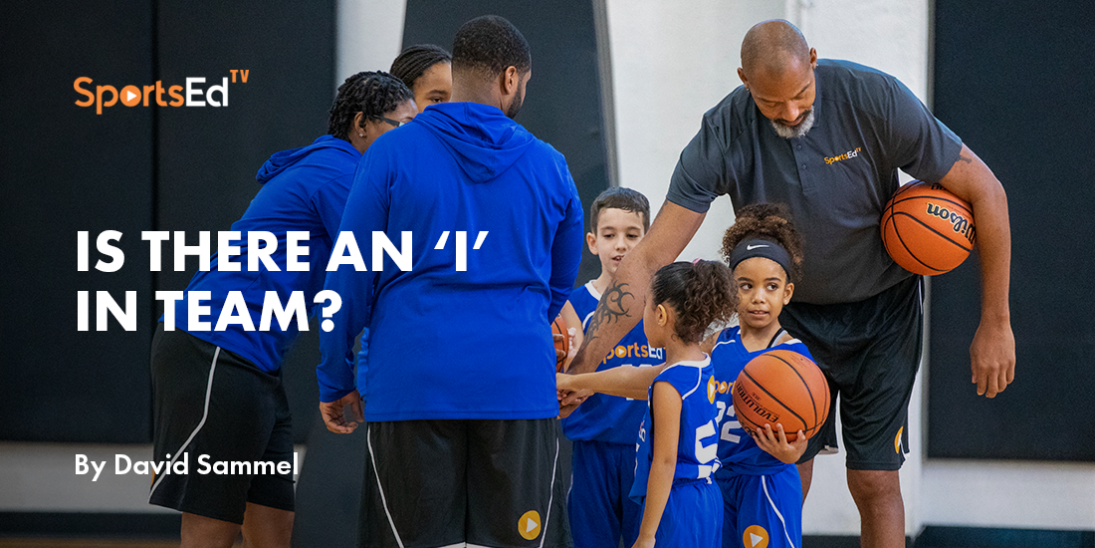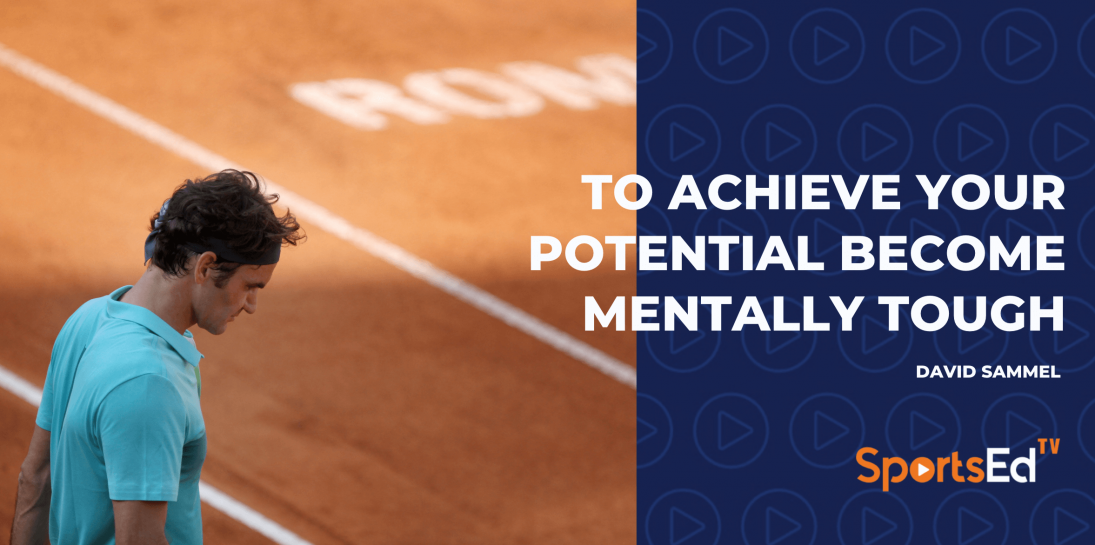Tennis
Welcome and thanks for visiting...

Meaningful Goal Setting

Exceptional talent is a gift as rare as the stars are far, yet the few we know, we anoint as superstars.
While all of life's spaces—business, sports, science, entertainment, and humanities—are replete with stars who shine brighter by their application of motivation, practice, and effort, because their day-long efforts come easily as they accumulate competitive rewards.
But what about the notion I had after a stinging Wimbledon qualifying loss: After my proverbial butt-kicking is it any wonder it is harder to get motivated than the trophy holder?
Sport teaches optimism, perseverance, and most importantly humility because defeat is always part of the game no matter the level. It trains the brain to find intrinsic value in all the training and matches. There would be no sense in taking part if victory was the only purpose.
My vocation, teaching through the sport of tennis allows me to follow that calling with passion, allowing me to follow life lesson number one: Listen to your heart and make something you love to do your life's pathway. Being there brings joy, self-respect, and daily mini-victories. Thrive in your chosen life's playground and the concept of work gets quite hazy floating on the clouds of fun.
Miguel Reyes-Varela
What Is Goal Settings
Realistic goals
Setting goals improves performance because it:
â allows targets to be met
â builds confidence
â provides motivation
â lowers arousal
There’s a trick to setting goals. Listen to your conscience, it will tell you when a goal you set is achievable. When we set goals that are more fluff than puff and we fail, we cultivate and excuse mentality that parades behind frivolous wishes. Flunking out on resolutions like at the New Year promising to work out five days a week, likely unrealistic to most, ultimately leads to a letdown. When you can’t trust your promises to yourself, your confidence is eroded.
Athletes who make excuses often learn over time that this justification and feeling sorry for themselves slows their improvement. Honesty is vital in facing difficulties and setting suitable practices to tackle problems. Set a goal that you can and will achieve such as 'I will do planks at home three times a week and aerobic exercise for 20 minutes once a week'.
When this goal is achieved for a sustained period you feel good about yourself and build trust. This will often lead to increased motivation and a desire to add to your program. Imagine setting a study goal of 60 minutes per day with 100% focus and no distractions whatsoever. You refuse to do more than one hour no matter how much you want to until one hour becomes normal and what you do with ease.
Goals from the heart succeed because they build belief and pride in your word and leave you with a desire to do a bit more, inspired by the constant success. In sport, good coaches know that there is no magic bullet, and small gains with good habits over time underpin outstanding achievement.

Hunter Reese
Smart goals
Remember the SMARTER principle when setting goals:
â Specific
â Measured
â Agreed
â Realistic
â Timed
â Exciting
â Recorded
Goals can be short-term or long-term. A short-term goal can be a process goal that refers to a technique or a performance goal that is about beating your last attempt. Long-term goals involve outcomes or products and are the ultimate aim.
I discourage long-term goals set in stone, as the world is ever-changing. An overall direction is great, such as becoming an architect but keep your mind open to the fantastic adventure of life. The architect might design a house for a television producer, who asks for advice on the design for a set. This project leads to the realization that her skills can be used in set design for movies, which she thoroughly enjoys. It leads to a career change. One day she receives an invitation to work at Disney and she moves to California…
The point is to have ambition, but don't let this focus blind you to left-field opportunities. A healthy focus on short-term goals from the heart that give you a wow factor makes even the hardest challenges fun without too much attention further down the line.
Relative comparisons
Einstein's theory of relativity is something that I do not understand and probably never will. I only know that it is important because I have been told that E = mc2 is essential in much of what we understand in science and maths. Lesson two is my simple theory of relativity: success or failure depends on the relative comparison. Wayne Rooney is very rich but nowhere near as wealthy as Bill Gates. So forget comparisons and get on with doing your thing as well as you can. As an example, I could say that many people respect me — but in a world of 7 billion, I am respected by a pinprick of humanity. Yet another pinprick of humanity has alerted me when I've been thoughtless and insensitive, and think I'm an idiot.
Comparisons breed no winners as there's no way we can fully understand the nuance of someone different. Once, in a seminar-like setting, the leader asked the audience to write their worst problem and deposit it in the box-of-woe. We were asked who wanted to reach in the woe-box and pick a random problem from the accumulated collection by other participants. There were no volunteers. Point well taken, in a great demo.
Nothing compares
Social learning theory states that personality is learned from significant others or learned from experience.
The whole of an athlete includes weaknesses. They're part of the unique light these stars shine, having learned to accept and manage the shadows a primary reason they have achieved stardom in the first place. As performers, their focus is on doing their job and not worrying about judgments, a recipe for disaster and failure.
Learn to be self-aware enough to know who and what you are. If there is something you don't like about yourself, just stop doing it. I was often late, disrespectful of other people's time with a thousand reasons why it was justified. Finally, a missed opportunity cut me deep enough to listen. I no longer tolerate myself doing this and I'm the biggest benefactor. We reap what we sow. It took a frustratingly long time for others to realize my timekeeping had improved but working hard to change perceptions was a price worth paying.
Work on yourself without comparing because ultimately you are comparing yourself to a myth fabricated in your brain of what another person's life is like. We are surprised when Heath Ledger kills himself or Rolf Harris goes to prison because until facts about lives are exposed we can only imagine how wonderful or terrible things might be for others. A bushman might have a quality of life rich in experience and spirit that no material wealth can equate. Receiving a Gucci watch means happiness to one person and useless indulgence to another. Neither is wrong.
Competition is a great teacher. As we compete we truly have no way to know if an opponent's life has its disruptions and ebbs. So, though you may be the decided underdog in a competition, give your best effort always. Upsets are incubated in the mix of off-court rhythms and affect the balance of play more than we often think.
Think of the consequences
In a third lesson acceptance of the consequences of our actions is primary. Accepting that the vagaries of life are often unfair, and consequences don't seem to get doled out on an equal basis. One of the ways I deal with my anger when confronted with unfairness is a belief that consequences often lurk in the mind of perpetrators to come to life in a future time of comeuppance. Competitors learn not to allow focus to be disrupted by cheats, poor refereeing, bad conditions, etc. by acceptance of the challenges of unfairness.
But why do some athletes carry the baggage of a negative result for years, yet only carry the glow of a win or positive experience for a short period of time? Remember to keep a balance, or the consequences of hanging on to the negatives will severely hamper your career and life.
Be nice
Learning to treat others well in all aspects is a fourth lesson that evokes great self-pleasure. Taking the time to say or be nice to someone else, a teammate, a fan, and opponents is a confidence enhancer—knowing you’re applying the golden rule. Striving to emulate the people who make others feel valued and at ease is a great goal. Even great athletes have to learn to stay grounded and respect talent that is related to the task at hand. Your great serve may not fix the leaky pipe, but the plumber can.
Going nowhere?
Am I wiser? I have changed. I still occasionally arrive late and waste time on unimportant jobs when I should do the important ones first, but not as much. I still watch a late-night movie when I know I will be tired and irritable the next day, but more often will turn off the television before I get hooked, and go to bed. I still sometimes get sucked in by people who just like to talk and don't cut them off when I know whatever I say has no effect. I'm much better at moving on because I've realized that this does not affect talkers and any guilt is wasted because they will just find another sap to indulge their time-wasting.
Everyone is vulnerable
Lesson six is to keep attempting to walk the talk. We are all hypocritical at times, probably more often than we admit. Sometimes when I give advice I have to wonder if there is an element of 'do as I say, not as I do about it.
I continue to work hard to walk the talk, which for any teacher is critical to long-term credibility. I give some worthy guidance and help individuals understand themselves and situations better — help create breakthroughs. I want to achieve more in my career but again this is relative because to many my volume of accomplishment is small. I work hard but like a balance and am certainly not beyond settling for a beer rather than preparing properly for the next day. Remember I'm an ordinary guy who has learned to simply not care where I sit on the scale of drive and ambition. I aim to do what I say I will do, enjoy my work, always learn and feel excited about the adventure.
I am fairly unsystematic but often find I'm the most organized in a meeting. I have yet to meet someone who has it all together and no one is without insecurities and frailty. Anyone is vulnerable if you are capable and committed to your plan of attack.
From ordinary to extraordinary Attitudes are states of readiness directed at attitude objects. They can be cognitive (thoughts), affective (feelings), or behavioral (actions). Some geniuses are simply outstanding, special people with phenomenal talent or brains who take one's breath away. However, many great accomplishments are achieved by ordinary people doing something extraordinarily well — yet few of us believe that an ordinary person like you and me can accomplish extraordinary success.
Work hard and good things will happen. That's lesson seven. But the fine print says you just don't know when. In retrospect an ordinary life takes on extraordinary reviews we find sometimes. Life and sports are best experienced as they unfold rather than pursued.
To me it’s obvious when an athlete is lusting for success—their eyes are far away, they flit from person to person, conversation to conversation fixated on being recognized as someone special. The madness of celebrity is conceit. The true superstars retain a capacity to understand and appreciate that he or she is extraordinary and is grateful for the talent and opportunity to use it. Rather than bask in temporary plaudits, the superstar embraces dedication and focus.

Roger Federer
Work hard and die
The eighth lesson deals with happiness and how you should design your own. Avoid disappointment by expecting too much in your architecture of happiness. For instance, a star I know made a million playing tennis and got depressed when he realized the money didn't change his life, just its venue. Prosperity and comfort are not always connected though there is satisfaction in each and your brilliance can shine when folks are comfortable in their skin and find appreciation in many realms.
Relish the journey, because when you get there the journey just continues whether you like it or not, and only ends when you die. The thought of death is a great encouragement to savor each day. Life is meant to have ups and downs and happiness is not a goal. Happiness is what you believe it to be and therefore you may as well design what makes you happy in a way that ensures success.
Follow your gut
The ninth lesson is to listen to your intuition. We are all aware of the little inner alarm that makes us uneasy about a situation. Being an ordinary guy, my reasons for too often ignoring this feeling are:
â the need to fit in and be part of something I thought was good.
â being seduced by a person, situation, or place
â wanting a certain outcome so badly that I ignore the warning signs and the feelings of ‘this is wrong in the hope that it will turn out all right
â ignoring a sixth sense about something a few times only for it to bite me in the rear, possibly months later
Athletes need to be strong because they have little time to waste. They need to get the right people around them, even if it means acting assertively to let someone go.
We come fully equipped with an internal compass, even a GPS to success. The key to activating it to our benefit is reading our intuition manual then learning to trust our instincts and discourage second-guessing. In competition, there's no room for doubt. Hope and fear are toxic. Often even a decision that is less than ideal when executed with conviction is more apt to produce good results than a better one supported by the insecurity of its value.
There is so much noise in our lives. Emotion, coupled with desire, means we so often fail to hear or listen to the inner voice, or we ignore it because it does not suit us to listen. I know all this yet I can still choose to ignore the best advice the world has to offer — the advice of my gut. However, with experience, the discipline to listen to this radar has improved.
I encourage you to value learning and be grateful for any chance to enhance, express, and celebrate your extraordinary journey.
This article is an extract from Locker Room
Power (www.lockerroompower.com).









